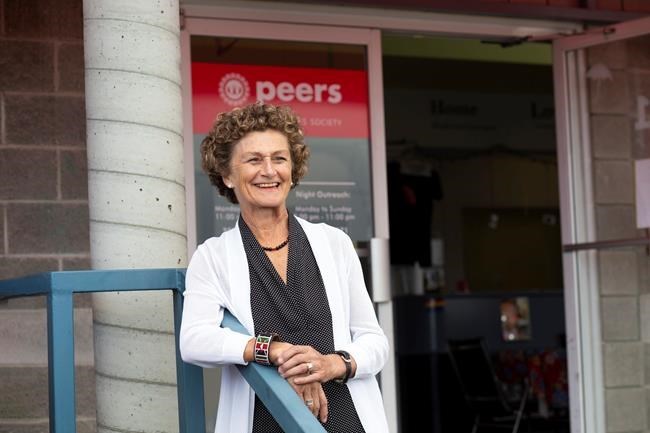
Cecilia Benoit poses in this undated handout photo. Benoit, a sociologist whose work with marginalized communities has made her one of Canada's leading women's health advocates, is among this year's winners of the $100,000 Killam Prize. THE CANADIAN PRESS/HO - University of Victoria
May 26, 2020 - 1:09 AM
A sociologist whose work with marginalized communities has made her one of Canada's leading women's health advocates is among this year's winners of the $100,000 Killam Prize.
The Canada Council for the Arts recognized five scholars from across the country Tuesday for outstanding contributions to the humanities, social sciences, natural sciences, health sciences and engineering.
Cecilia Benoit, a sociology professor and scientist at the University of Victoria's Canadian Institute for Substance Use Research, is being honoured for her research on the health inequities faced by marginalized communities, including at-risk Indigenous women, sex workers, street-involved youth and mothers dealing with addiction.
In an interview, Benoit said these health-care disparities have become even more prevalent during the COVID-19 pandemic, with some of the most vulnerable members of society struggling to access medical resources and financial benefits.
Canadian lawmakers need to fill in these gaps, or they could see cases of the novel coronavirus resurge in the months ahead, said Benoit.
"We have to improve the life situation and access to resources ... for the most marginalized, because they're the most susceptible to be exposed to this illness and then have the most difficulty dealing with it."
Benoit, who hails from Newfoundland and Labrador and has Mi'kmaq and French ancestry, has spent 30 years building connections with community groups across Canada as part of a "bottom-up" approach to addressing issues in women's health care.
In recent years, Benoit said she's been working to "empower" sex workers with skills they can use to improve conditions on the ground, rather than her telling them what to do.
She's been a vocal critic of parts of Canada's prostitution law that criminalize purchase of sex and communication for that purpose.
Benoit has also pushed for midwifery to be legally recognized and publicly funded across Canada.
She hopes that the Killam Prize will amplify her voice so she can continue to speak up for the needs of people who often go unheard.
"I never would have ever expected to receive (the Killam), and especially because it does recognize these groups in our society that are invisible are undervalued," said Benoit.
"With good useful knowledge and with progressive policy, we actually can reduce (stigma) and improve the lives of people or change laws. It just brings a lot of joy to me, so I want to do that work as long as I can."
Other Killam Prize recipients include McGill University neuroscientist Alan Evans for his leading work in modelling brain networks and University of Toronto professor Edward Sargent for his pioneering contributions to nanotechnology.
University of Alberta professor Sarah Carter is being recognized for her writings on Western Canada's colonial and Indigenous history, while the University of Toronto's Barbara Sherwood Lollar is commended for her influential research on planetary geology.
Winners are chosen by a committee of their peers. Previous winners include Victoria Kaspi, Mark Wainberg and Nobel Prize winner Arthur McDonald.
The Killam program also announced recipients of its research fellowships, which dole out a collective $840,000 over two years to six scholars for independent research projects.
This year's recipients include: Eric Brown of McMaster University for a project called "A fresh approach to antibacterial drug discovery for drug-resistant infections"; Jennifer Clapp of the University of Waterloo for "The Rise of Agrifood Mega-Companies: Implications for the Global Food System"; Myriam Denov of McGill University for "Born of War: The Perspectives, Realities, and Needs of Children Born of Wartime Rape"; Joseph Heath of the University of Toronto for "How to criticize society"; Milica Radisic of the University of Toronto for "Heart-on-a-chip delivers on the promise of personalized medicine"; and Nathalie Tufenkji of McGill for "Impacts of plastic pollution in northern climates."
This report by The Canadian Press was first published May 26, 2020.
News from © The Canadian Press, 2020